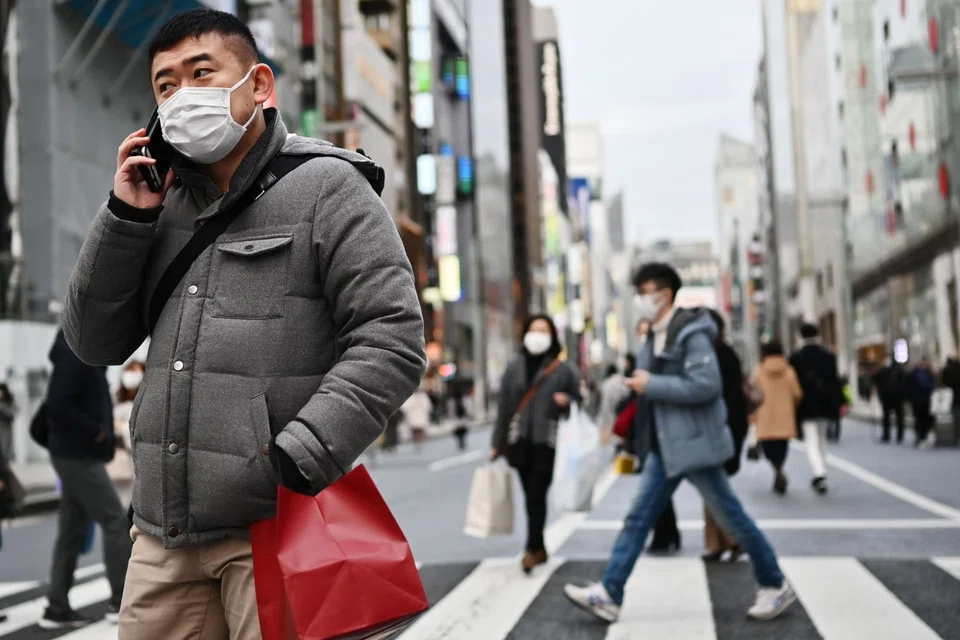In sickness and in health: Honeymoon period for China-Japan relations?
China-Japan relations have never been better in recent years. Chinese commentators have praised Japan's elegant gestures like sending medical supplies signed off with ancient verses such as "山川异域,风月同天" (roughly: different lands, same sky). China-Japan watchers say this bodes well ahead of President Xi Jinping's state visit to Japan in April. But whether this goodwill will last, is quite another matter.

Warm gestures and assistance that Japan has given to China since the start of the Covid-19 outbreak are winning them high praise from Chinese society. Academics that I interviewed believe that Japan's successful public relations move will improve ties between the two countries. Nonetheless, it will not be significant enough to herald a "honeymoon" period as unresolved fundamental conflicts still exist between both countries.
"How is China going to return the favour?" - a WeChat official account linked to Chinese state media
Since China's outbreak worsened at the end of January, the Japanese government has shown its willingness to battle alongside China and provide as much assistance as possible. The Japanese government, ruling party, local governments, and grassroots organisations rallied together to donate funds and protective gear to China. They also gave China moral support, demonstrating their close and friendly relationship with each other.

On 10 February, the ruling Liberal Democratic Party of Japan even announced that it would deduct 5,000 yen (S$63) from the March salary of each parliamentarian in support of China's fight against the outbreak. A WeChat official account linked with Chinese state media, niutanqin (bull piano), published an article saying that "the Japanese did something really surprising this time", and that although the actual donated sum does not add up to much, it is the thought that counts. The article also asked, "How is China going to return the favour?"
Hua Chunying, Chinese foreign ministry spokeswoman also expressed her gratitude towards Japan. "I believe many Chinese netizens have also noticed these heartwarming details. We thank people from any country who have shown sympathy, understanding and support during this difficult time. We will keep this in our hearts," she said. Commentators predict that with Japan's well-executed PR move, both sides will have a better impression of each other, warming up the scene for Chinese President Xi Jinping's visit to Japan this year, and propelling China-Japan relations into a "honeymoon" period.
Japan's pragmatic approach
However, Professor Li Mingjiang of Singapore's Nanyang Technological University's S. Rajaratnam School of International Studies told us during an interview that while Japan's actions can improve China-Japan relations, both countries will not enter a "honeymoon" period. He believes that we can only expect both countries to enter a phase of increased cooperation and improved relations.

Prof Li said that while some improvements to China-Japan relations were observed over the past two to three years, many fundamental problems between the two countries remain unresolved, including the Diaoyu Dao (which the Japanese call Senkaku Islands), Japan's stance towards Taiwan, and historical problems between China and Japan. He described recent China-Japan security issues as being managed and in control. "[Relations] are not as bad as before, that's all," he said.
As both countries are affected by the US's trade war with China, China and Japan are motivated to cooperate with each other.
Prof Li believes that Japan's assistance to China is not entirely unexpected - as Xi is expected to visit Japan this Spring, Japan also hopes that its relief efforts on China will form a more positive Japan-China relationship.
Closer economic integration a boon for China and Japan
The US has been initiating trade wars, implementing tactical retreats, and even collecting "security fees" from its allies since US President Donald Trump took office. These actions have placed immense pressure on Japan. Prof Li believes that Japan actively improved its relationship with China out of practical considerations. He said, "Japan's decision makers and elites have started to feel that the US is not as reliable as before. Thus, it has to improve its relations with China in order to reduce the amount of pressure from the US."
Furthermore, as China's GDP is over two times that of Japan's, Japan cannot become China's enemy. Improving China-Japan relations has thus become Japan's important strategic decision. As both countries are affected by the US's trade war with China, China and Japan are motivated to cooperate with each other. In Prof Li's view, "both parties' mutual interest lies in offsetting the US's economic and trade pressure on China and Japan".
With some parts of the world beginning to discriminate against the Chinese following the outbreak, Japan's warmth and friendliness appears magnified.
Professor Yang Lijun of South China University of Technology's Institute of Public Policy told us during an interview that the China-US trade war has made China and Japan recognise the inseparable relationship they have with each other. "If China-Japan relations are bad, it is bad for both countries," she said.

Prof Yang added that China and Japan have realised how integrated their economies are, and the many opportunities for mutual gain that comes with it. For example, America's technological restrictions on China have made China realise that it can complement Japan, the world's leading technology innovator, in this area. On the other hand, Japan's ageing population and shrinking domestic consumer market is also in need of a boost from China's massive market.
Japan also provided assistance to China during the 2008 Sichuan earthquake, but Prof Yang believes that the reason for the prominence of its current assistance lies in the stark contrast between Japan's response and the reactions of Hong Kong, Taiwan, and some other countries. With some parts of the world beginning to discriminate against the Chinese following the outbreak, Japan's warmth and friendliness appears magnified.
According to a report from Kyodo News yesterday (16 February), Xi's visit is not expected to be postponed.
Prof Yang notes that Japan's treatment of China's epidemic as if it were its own domestic issue is due to its high relevance to the Tokyo Olympics. Prof Li agrees. "If the virus is not effectively contained, it will have a great impact on the Olympics. That's without a doubt... By helping China, Japan is, to some extent, helping itself as well," he said.

As for whether the Covid-19 will upset Xi's upcoming visit to Japan, Prof Li predicts that there is still a high probability that the visit will take place. He said, "There may be some changes in April, but it should not drag on for too long."
Prof Li also believes that China and Japan will sign its fifth political document during Xi's visit to Japan. He said, "It has been a long time since there has been a comprehensive and authoritative political document detailing the governing of China-Japan ties. Under current circumstances, a political document is needed to outline the long-term development in China-Japan relations."
According to a report from Kyodo News yesterday (16 February), Xi's visit is not expected to be postponed. At a security conference held on 15 February in Munich, Japan Foreign Minister Toshimitsu Motegi and Chinese State Councilor and Foreign Minister Wang Yi reached a consensus that preparations for Xi's April visit will continue. The report also said that Yang Jiechi, director of the Office of Foreign Affairs of the Communist Party of China, will visit Japan at the end of February, in preparation for Xi's upcoming visit.



![[Photos] Fact versus fiction: The portrayal of WWII anti-Japanese martyrs in Taiwan](https://cassette.sphdigital.com.sg/image/thinkchina/3494f8bd481870f7c65b881fd21a3fd733f573f23232376e39c532a2c7593cbc)

